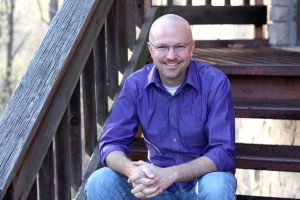
Dating is one of the most exciting aspects of early adulthood. Meeting new friends, the warm rush of mutual attraction, and the potential for finding a lifelong partner, all make dating a thrilling prospect.
Yet, it is not without its pitfalls; heartbreak, heartache, and the complexities of sexually charged encounters also make it a challenging terrain to navigate. Adding alcohol to the mix complicates an already complicated situation.
In recent years there has been heightened attention given to the occurrence of date rape and “date rape drugs” such as Rohypnol. [1] While date rape drugs pose a severe problem, research is showing that sexual assault occurs at a much higher rate because of voluntary drug and alcohol abuse.
Researchers in Australia completed a systematic review of “to determine the current global prevalence of drug-facilitated sexual assault (DFSA) reported in adults in order to identify trends in the toxicology findings in DFSA around the world over the past 20 years.”
They concluded that “alcohol intoxication combined with voluntary drug consumption presents the greatest risk factor for DFSA, despite populist perceptions that covert drink-spiking is a common occurrence.” [2] In other words, the presence of alcohol in dating and social situations increases the dangers of sexual assault more than date rape drugs. This may because alcohol lowers the defenses of the victim while impairing judgment and increasing aggression of assailants.
Alcohol.org reports that in one-third of sexual assaults, the aggressor is intoxicated, and at least 50 percent of student sexual assaults involve alcohol. [3]
To better understand how alcohol and dating mix, Alcohol.org surveyed over 1,000 people about their dating and drinking habits and found that 37% of people have at least one drink before going on a first date, and 86% of people drink during the first date. The survey also found that the more drinks one has on a first date, the more likely the date will end in a sexual encounter. [4]
Percentage of first dates leading to sex by the average number of drinks consumed:
- 0 drinks – 10% of dates result in sexual encounters
- 1 drinks – 14% of dates result in sexual encounters
- 2 drinks – 17% of dates result in sexual encounters
- 3 drinks – 24% of dates result in sexual encounters
- 4 drinks – 41% of dates result in sexual encounters
- 5+ drinks – 51% of dates result in sexual encounters
 These numbers support the findings that as alcohol consumption increases, judgment decreases, making decisions about sexual activity, which require awareness, forethought, and consent, more difficult.
These numbers support the findings that as alcohol consumption increases, judgment decreases, making decisions about sexual activity, which require awareness, forethought, and consent, more difficult.
Alcohol inhibits this kind of thinking through what researchers call alcohol myopia, which increases a person’s concentration upon immediate events and reduces awareness of future consequences. [5] Alcohol myopia also negatively affects impulsive behavior, aggression, attention, and self-awareness. [6]
Binge drinking can be particularly dangerous in campus settings. The National Institute on Alcohol and Alcohol Abuse reports, “Large amounts of alcohol, particularly if consumed rapidly, can produce partial (i.e., fragmentary) or complete (i.e., en bloc) blackouts, which are periods of memory loss for events that transpired while a person was drinking. Blackouts are much more common among social drinkers—including college drinkers—than was previously assumed, and have been found to encompass events ranging from conversations to intercourse.” [7]
In light of these findings, and to fully enjoy the dating and social opportunities of early adulthood, limit alcohol use to fewer drinks, stay connected with friends you trust, and avoid drinking before leaving for a date.
REFERENCES
[1] Date rape drugs. (2019, April 26). Retrieved February 9, 2020, from https://www.womenshealth.gov/a-z-topics/date-rape-drugs
[2] Anderson, L. J., Flynn, A., & Pilgrim, J. L. (2017, April). A global epidemiological perspective on the toxicology of drug-facilitated sexual assault: A systematic review. Retrieved February 9, 2020, from https://www.ncbi.nlm.nih.gov/pubmed/28284121
[3] The Role Alcohol Plays in Sexual Assaults on College Campuses. (2019, December 27). Retrieved February 9, 2020, from https://www.alcohol.org/effects/sexual-assault-college-campus/
[4] Drinking on Dates. (n.d.). Retrieved February 9, 2020, from https://www.alcohol.org/guides/drinking-on-dates/
[5] (n.d.). Retrieved February 9, 2020, from https://www.greenfacts.org/glossary/abc/alcohol-myopia.htm
[6] Heshmat, S. (2016, July 7). 7 Effects of Alcohol Myopia. Retrieved February 9, 2020, from https://www.psychologytoday.com/us/blog/science-choice/201607/7-effects-alcohol-myopia
[7] White, A. M. (n.d.). What Happened? Alcohol, Memory Blackouts, and the Brain. Retrieved February 9, 2020, from https://pubs.niaaa.nih.gov/publications/arh27-2/186-196.htm
About the Author:
 Travis Stewart, LPC has been mentoring others since 1992 and became a Licensed Professional Counselor in 2005. His counseling approach is relational and creative, helping people understand their story while also building hope for the future. Travis has experience with a wide variety of issues which might lead people to seek out professional counseling help. This includes a special interest in helping those with compulsive and addictive behaviors such as internet and screen addiction, eating disorders, anxiety, and perfectionism. Specifically, he has worked with eating disorders since 2003 and has learned from many of the field’s leading experts. He has worked with hundreds of individuals facing life-threatening eating disorders in all levels of treatment. Travis’ website is wtravisstewart.com
Travis Stewart, LPC has been mentoring others since 1992 and became a Licensed Professional Counselor in 2005. His counseling approach is relational and creative, helping people understand their story while also building hope for the future. Travis has experience with a wide variety of issues which might lead people to seek out professional counseling help. This includes a special interest in helping those with compulsive and addictive behaviors such as internet and screen addiction, eating disorders, anxiety, and perfectionism. Specifically, he has worked with eating disorders since 2003 and has learned from many of the field’s leading experts. He has worked with hundreds of individuals facing life-threatening eating disorders in all levels of treatment. Travis’ website is wtravisstewart.com
The opinions and views of our guest contributors are shared to provide a broad perspective of addictions. These are not necessarily the views of Addiction Hope, but an effort to offer a discussion of various issues by different concerned individuals.
We at Addiction Hope understand that addictions result from multiple physical, emotional, environmental and genetic factors. If you or a loved one are suffering from an addiction, please know that there is hope for you, and seek immediate professional help.
Reviewed and Approved by Jacquelyn Ekern, MS, LPC on February 24, 2020
Published February 24, 2020, on AddictionHope.com
